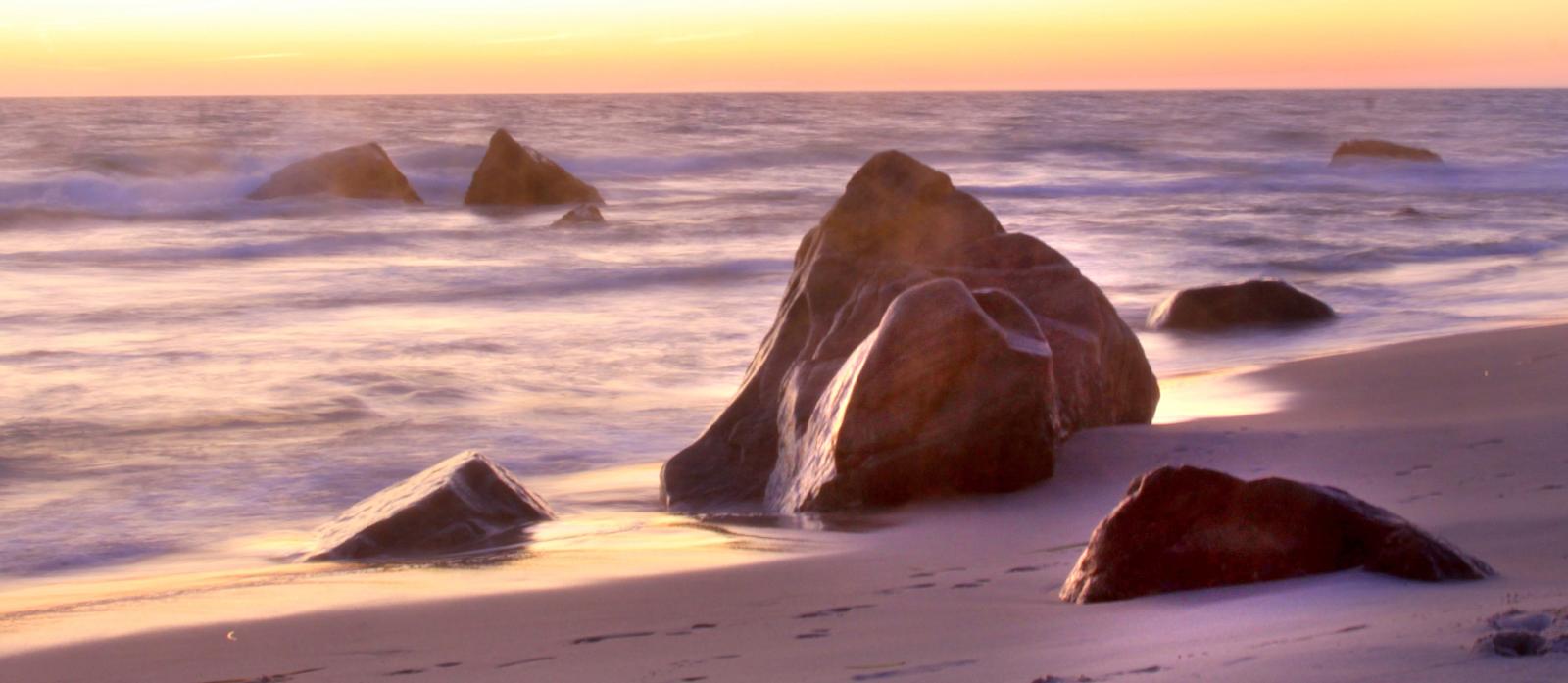The Massachusetts Land Court has upheld the town of Aquinnah in a pivotal case that will ultimately decide whether a large swath of rare, salt-blasted coastal heathland along Moshup Trail remains forever wild or is opened up for development.
In a decision issued August 12, the land court ruled that Bear Realty Trust and a group of other landowners do not have access to some 30 acres of landlocked property off Moshup Trail. Bear Realty, whose principals are James Decoulos and Maria Kitras, has been waging a series of legal battles against the town on various fronts for the past 13 years. And while the case at hand involves 30 acres, some 100 acres off Moshup Trail could potentially be affected by the outcome.
The Vineyard Conservation Society, Martha’s Vineyard Land Bank and state Attorney General have all sided with the town in the complicated court case.
In the ruling last week the land court found that there was no easement by necessity, a legal term, for a number of lots off Moshup Trail owned by Bear Realty and others. The history of the case reads in part like a history of the town, and the legal intricacies date back to the late 1800s when the entire town of Gay Head was divided into more than 700 lots. A large number of them were Indian setoff lots for members of the Wampanoag tribe, in the area known as Zack’s Cliffs. Gay Head was incorporated in 1871; Moshup Trail was laid out as a state road through Gay Head in 1955.
Attorneys for Bear Realty argued in court that due to decisions made by state probate commissioners in the 1871 and 1878 land divisions that created the setoff lots, the current landowners are entitled to easements by necessity.
But the land court disagreed, in part because the Indian setoff lots were held in common.
“The failure to provide any easements for access appears intentional,” wrote the Hon. Charles W. Trombly Jr. in the decision last week. “No easements . . . other than those that were expressly granted, were intended.”
If it is allowed to stand, the ruling deals a serious blow to Bear Realty’s legal campaign against the town, and bolsters a conservation initiative that began along Moshup Trail more than 10 years ago.
“This is a great win — not just for the town but for the preservation of the entire Moshup Trail area; this is among the most highly sensitive, beautiful, raw, rough scenic land on the Vineyard,” said town counsel Ronald H. Rappaport. “If this decision holds, the ability to place a significant number of homes in that landscape will be prevented,” he added.
Vineyard Conservation Society executive director Brendan O’Neill, whose organization has been at the forefront of the Moshup Trail court case, agreed.
“This is the most important, longest running and most costly campaign in the VCS entire history,” he said. “We have worked for more than a dozen years to achieve this win.” He described the conservation initiative that began in the 1990s with a $500,000 state self-help grant and donations from a number of foundations including the late David Smith and the Edey Foundation, to spend $2.7 to buy 38 acres at Moshup Trail. “That property remains in this patchwork and it is a project waiting to be finished,” Mr. O’Neill said. And he said the environmental significance of Moshup Trail cannot be understated. “This is a high priority area — this Northeast coastal heathland habitat is spectacular and has been eliminated through most of its range, gone largely due to development,” he said.
Mr. Rappaport praised the support of the town and the work of VCS on the case. “The voters have stood by defending this for 13 years and VCS has really led the effort — and it’s nice, even though it’s not the end of the day at this point in the process, to step back and say this is a fight worth fighting, for the public interest has prevailed,” he said.
Aquinnah selectman Camille Rose added her own words of praise for the work of the longtime town counsel.
“It has been a long haul — I am so impressed with Ron’s sensitivity to the history . . . and the Indian history and his ability to express that to the court,” she said, adding: “I am so proud of the people in Gay Head — it was still Gay Head when we started all those years ago — they have given their unreserved support to this, even though they knew it was going to be long. And this is just great. I’m elated.”
The case decided last week has bounced around in court since it was first filed in 1997. In 2001 a land court judge ruled in favor of the town; in 2005 a state appeals court judge overturned the ruling on technical grounds, sending it back to the land court for fresh review. Meanwhile, the land court judge that ruled the first time on the case had retired, making Judge Trombly the third judge to handle the case.
Quoting another case, which has no Vineyard relevance but which the ruling rested on as convincing case law, Judge Trombly concluded that this “case is a hard one but if we should hold otherwise it would be another instance of a hard case making bad law.”







Comments (1)
Comments
Comment policy »